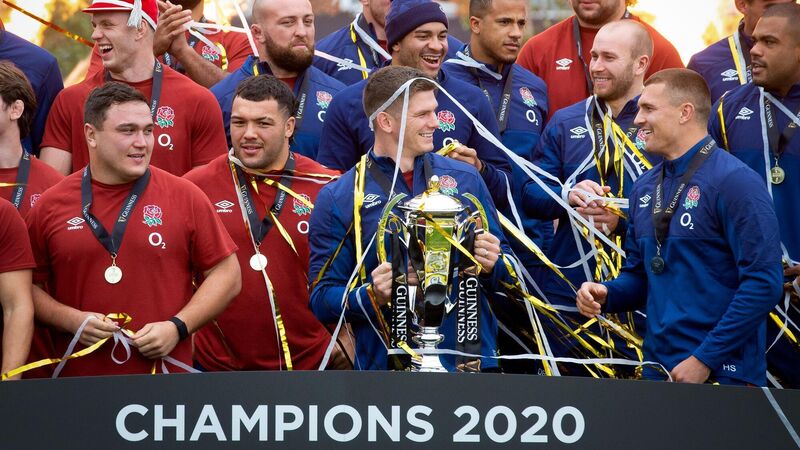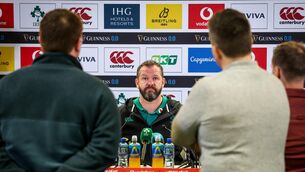Peter Jackson: Six Nations 2020 proves the best team doesn't always come first

England captain Owen Farrell lifts the Guinness Six Nations Trophy with his team. Picture: INPHO/Andrew Fosker
And so another Six Nations title slips from the grasp of the team playing the best rugby, leaving France as empty as their flying saucer of a stadium.
England’s off-stage crowning as champions, feet up in a biosecure hotel in downtown Rome watching the remaining contenders eliminate each other in Paris, added to the emptiness of the finale. How ironic that one ancient English foe should conspire with another to festoon the trophy in white ribbons before handing it to them.










